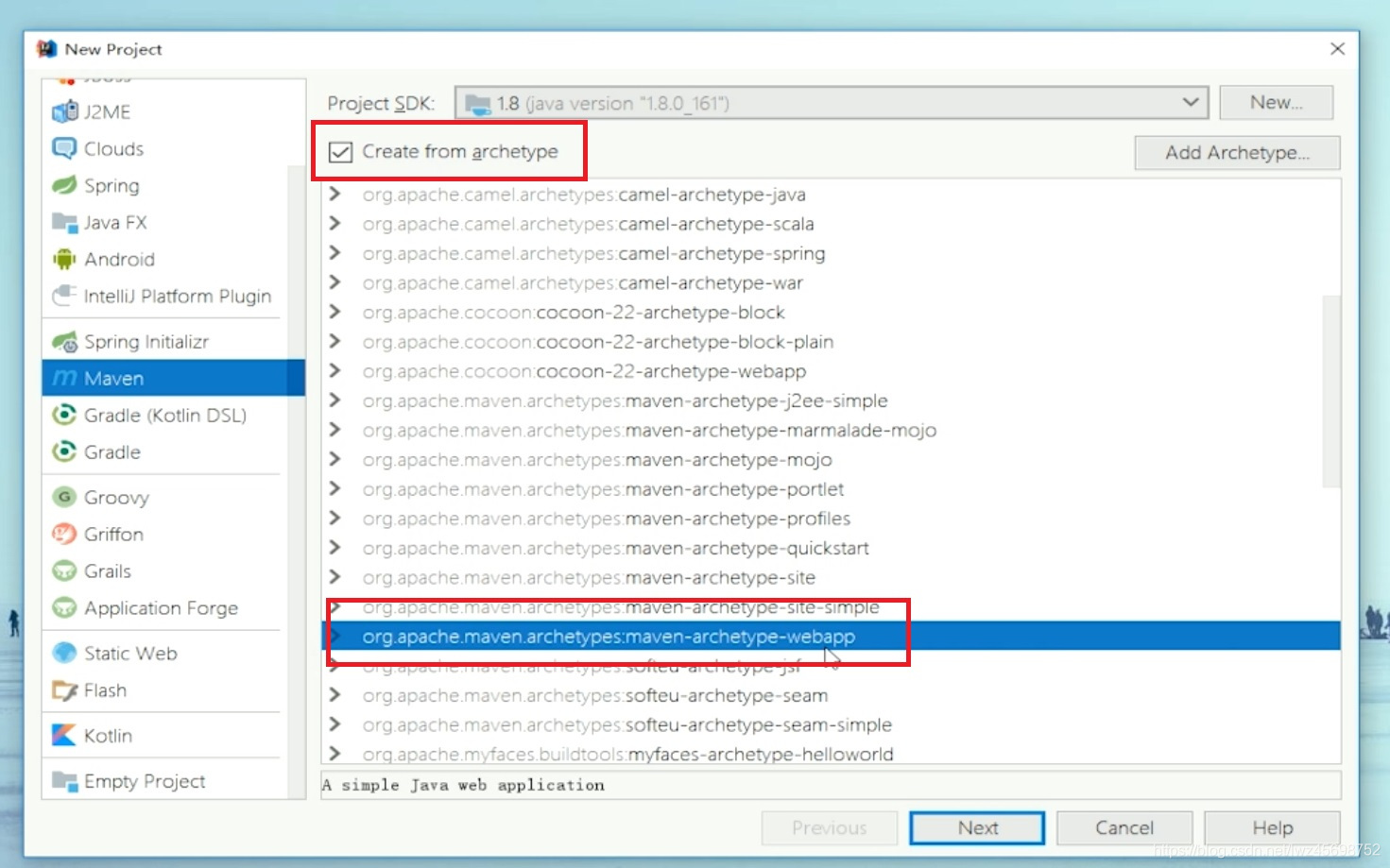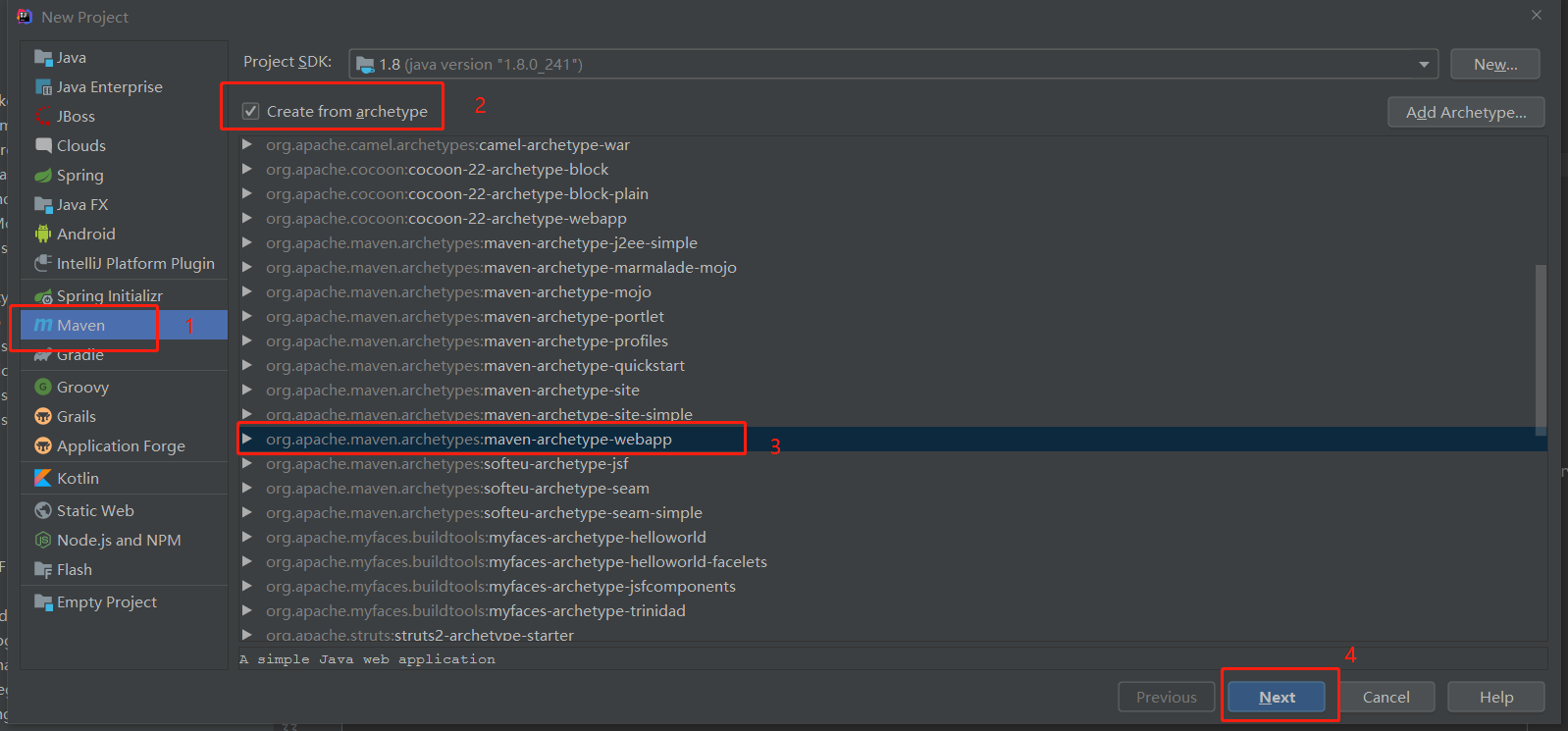一、SpringMVC基础入门,创建一个HelloWorld程序
1.首先,导入SpringMVC需要的jar包。
2.添加Web.xml配置文件中关于SpringMVC的配置
<!--configure the setting of springmvcDispatcherServlet and configure the mapping-->
<servlet>
<servlet-name>springmvc</servlet-name>
<servlet-class>org.springframework.web.servlet.DispatcherServlet</servlet-class>
<init-param>
<param-name>contextConfigLocation</param-name>
<param-value>classpath:springmvc-servlet.xml</param-value>
</init-param>
<!-- <load-on-startup>1</load-on-startup> -->
</servlet>
<servlet-mapping>
<servlet-name>springmvc</servlet-name>
<url-pattern>/</url-pattern>
</servlet-mapping>
3.在src下添加springmvc-servlet.xml配置文件
<?xmlversion="1.0"encoding="UTF-8"?>
<beansxmlns="https://www.springframework.org/schema/beans"
xmlns:xsi="https://www.w3.org/2001/XMLSchema-instance"
xmlns:context="https://www.springframework.org/schema/context"
xmlns:mvc="https://www.springframework.org/schema/mvc"
xsi:schemaLocation="https://www.springframework.org/schema/beanshttps://www.springframework.org/schema/beans/spring-beans.xsd
https://www.springframework.org/schema/contexthttps://www.springframework.org/schema/context/spring-context-4.1.xsd
https://www.springframework.org/schema/mvchttps://www.springframework.org/schema/mvc/spring-mvc-4.1.xsd">
<!-- scan the package and the sub package -->
<context:component-scanbase-package="test.SpringMVC"/>
<!-- don't handle the static resource -->
<mvc:default-servlet-handler/>
<!-- if you use annotation you must configure following setting -->
<mvc:annotation-driven/>
<!-- configure the InternalResourceViewResolver -->
<beanclass="dd3191fb6457e4cf org.springframework.web.servlet.view.InternalResourceViewResolver"
id="internalResourceViewResolver">
<!-- 前缀 -->
<propertyname="prefix"value="/WEB-INF/jsp/"/>
<!-- 后缀 -->
<propertyname="suffix"value=".jsp"/>
</bean>
</beans>
4.在WEB-INF文件夹下创建名为jsp的文件夹,用来存放jsp视图。创建一个hello.jsp,在body中添加“Hello World”。
5.建立包及Controller,如下所示
6.编写Controller代码
@Controller
@RequestMapping("/mvc")
publicclassmvcController {
@RequestMapping("/hello")
publicString hello(){
return"hello";
}
}
7.启动服务器,键入https://localhost:8080/项目名/mvc/hello
二、配置解析
1.Dispatcherservlet
DispatcherServlet是前置控制器,配置在web.xml文件中的。拦截匹配的请求,Servlet拦截匹配规则要自已定义,把拦截下来的请求,依据相应的规则分发到目标Controller来处理,是配置spring MVC的第一步。
2.InternalResourceViewResolver
视图名称解析器
3.以上出现的注解
@Controller 负责注册一个bean 到spring 上下文中
@RequestMapping 注解为控制器指定可以处理哪些 URL 请求
三、SpringMVC常用注解
@Controller
负责注册一个bean 到spring 上下文中
@RequestMapping
注解为控制器指定可以处理哪些 URL 请求
@RequestBody
该注解用于读取Request请求的body部分数据,使用系统默认配置的HttpMessageConverter进行解析,然后把相应的数据绑定到要返回的对象上,再把HttpMessageConverter返回的对象数据绑定到 controller中方法的参数上
@ResponseBody
该注解用于将Controller的方法返回的对象,通过适当的HttpMessageConverter转换为指定格式后,写入到Response对象的body数据区
@ModelAttribute
在方法定义上使用 @ModelAttribute 注解:Spring MVC 在调用目标处理方法前,会先逐个调用在方法级上标注了@ModelAttribute 的方法
在方法的入参前使用 @ModelAttribute 注解:可以从隐含对象中获取隐含的模型数据中获取对象,再将请求参数 –绑定到对象中,再传入入参将方法入参对象添加到模型中
@RequestParam
在处理方法入参处使用 @RequestParam 可以把请求参 数传递给请求方法
@PathVariable
绑定 URL 占位符到入参
@ExceptionHandler
注解到方法上,出现异常时会执行该方法
@ControllerAdvice
使一个Contoller成为全局的异常处理类,类中用@ExceptionHandler方法注解的方法可以处理所有Controller发生的异常
四、自动匹配参数

//match automatically
@RequestMapping("/person")
publicString toPerson(String name,doubleage){
System.out.println(name+" "+age);
return"hello";
}
五、自动装箱
1.编写一个Person实体类
packagetest.SpringMVC.model;
publicclassPerson {
publicString getName() {
returnname;
}
publicvoidsetName(String name) {
this.name = name;
}
publicintgetAge() {
returnage;
}
publicvoidsetAge(intage) {
this.age = age;
}
privateString name;
privateintage;
}
2.在Controller里编写方法
//boxing automatically
@RequestMapping("/person1")
publicString toPerson(Person p){
System.out.println(p.getName()+" "+p.getAge());
return"hello";
}
六、使用InitBinder来处理Date类型的参数
//the parameter was converted in initBinder
@RequestMapping("/date")
publicString date(Date date){
System.out.println(date);
return"hello";
}
//At the time of initialization,convert the type "String" to type "date"
@InitBinder
publicvoidinitBinder(ServletRequestDataBinder binder){
binder.registerCustomEditor(Date.class, newCustomDateEditor(newSimpleDateFormat("yyyy-MM-dd"),
true));
}
七、向前台传递参数
//pass the parameters to front-end
@RequestMapping("/show")
publicString showPerson(Map<String,Object> map){
Person p =newPerson();
map.put("p", p);
p.setAge(20);
p.setName("jayjay");
return"show";
}
前台可在Request域中取到"p"
八、使用Ajax调用
//pass the parameters to front-end using ajax
@RequestMapping("/getPerson")
publicvoidgetPerson(String name,PrintWriter pw){
pw.write("hello,"+name);
}
@RequestMapping("/name")
publicString sayHello(){
return"name";
}
前台用下面的Jquery代码调用
$(function(){
$("#btn").click(function(){
$.post("mvc/getPerson",{name:$("#name").val()},function(data){
alert(data);
});
});
});
九、在Controller中使用redirect方式处理请求
//redirect
@RequestMapping("/redirect")
publicString redirect(){
return"redirect:hello";
}
十、文件上传
1.需要导入两个jar包
2.在SpringMVC配置文件中加入
<!-- upload settings -->
<beanid="multipartResolver"class="91fb6457e4cf102a org.springframework.web.multipart.commons.CommonsMultipartResolver">
<propertyname="maxUploadSize"value="102400000"></property>
</bean>
3.方法代码
@RequestMapping(value="/upload",method=RequestMethod.POST)
publicString upload(HttpServletRequest req) throwsException{
MultipartHttpServletRequest mreq = (MultipartHttpServletRequest)req;
MultipartFile file = mreq.getFile("file");
String fileName = file.getOriginalFilename();
SimpleDateFormat sdf = newSimpleDateFormat("yyyyMMddHHmmss");
FileOutputStream fos = newFileOutputStream(req.getSession().getServletContext().getRealPath("/")+
"upload/"+sdf.format(newDate())+fileName.substring(fileName.lastIndexOf('.')));
fos.write(file.getBytes());
fos.flush();
fos.close();
return"hello";
}
4.前台form表单
<formaction="mvc/upload"method="post"enctype="multipart/form-data">
<inputtype="file"name="file"><br>
<inputtype="submit"value="submit">
</form>
十一、使用@RequestParam注解指定参数的name
@Controller
@RequestMapping("/test")
publicclassmvcController1 {
@RequestMapping(value="/param")
publicString testRequestParam(@RequestParam(value="id") Integer id,
@RequestParam(value="name")String name){
System.out.println(id+" "+name);
return"/hello";
}
}
十二、RESTFul风格的SringMVC
1.RestController
@Controller
@RequestMapping("/rest")
publicclassRestController {
@RequestMapping(value="/user/{id}",method=RequestMethod.GET)
publicString get(@PathVariable("id") Integer id){
System.out.println("get"+id);
return"/hello";
}
@RequestMapping(value="/user/{id}",method=RequestMethod.POST)
publicString post(@PathVariable("id") Integer id){
System.out.println("post"+id);
return"/hello";
}
@RequestMapping(value="/user/{id}",method=RequestMethod.PUT)
publicString put(@PathVariable("id") Integer id){
System.out.println("put"+id);
return"/hello";
}
@RequestMapping(value="/user/{id}",method=RequestMethod.DELETE)
publicString delete(@PathVariable("id") Integer id){
System.out.println("delete"+id);
return"/hello";
}
}
2.form表单发送put和delete请求
在web.xml中配置
1
2
3
4
5
6
7

8
9
<!-- configure the HiddenHttpMethodFilter,convert the post method to put or delete -->
<filter>
<filter-name>HiddenHttpMethodFilter</filter-name>
<filter-class>org.springframework.web.filter.HiddenHttpMethodFilter</filter-class>
</filter>
<filter-mapping>
<filter-name>HiddenHttpMethodFilter</filter-name>
<url-pattern>/*</url-pattern>
</filter-mapping>
在前台可以用以下代码产生请求
<formaction="rest/user/1"method="post">
<inputtype="hidden"name="_method"value="PUT">
<inputtype="submit"value="put">
</form>
<formaction="rest/user/1"method="post">
<inputtype="submit"value="post">
</form>
<formaction="rest/user/1"method="get">
<inputtype="submit"value="get">
</form>
<formaction="rest/user/1"method="post">
<inputtype="hidden"name="_method"value="DELETE">
<inputtype="submit"value="delete">
</form>
十三、返回json格式的字符串
1.导入以下jar包
2.方法代码
@Controller
@RequestMapping("/json")
publicclassjsonController {
@ResponseBody
@RequestMapping("/user")
publicUser get(){
User u = newUser();
u.setId(1);
u.setName("jayjay");
u.setBirth(newDate());
returnu;
}
}
微信公众号:it_haha
内容转载自公众号
IT哈哈
了解更多
标签: 客户端mvc

